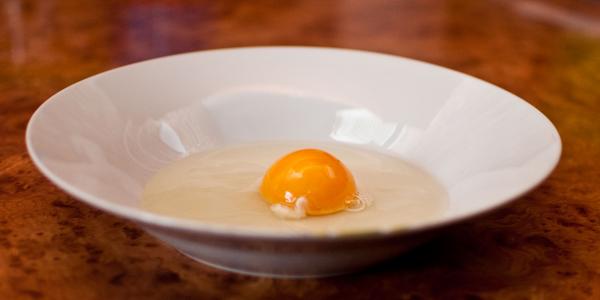 Much has been said about the questionable freshness of store eggs, especially those sold in supermarkets. Unfortunately, there is quite a lot of truth in that, so it's worth taking care of it, to avoid an unpleasant adventure. Here are our ways to determine egg freshness.
Much has been said about the questionable freshness of store eggs, especially those sold in supermarkets. Unfortunately, there is quite a lot of truth in that, so it's worth taking care of it, to avoid an unpleasant adventure. Here are our ways to determine egg freshness.
The first way is the easiest and already available in the supermarket. Just take the egg out of the tray and look at the laying date stamped on it. The egg is fit for consumption for about a month, it is therefore worth choosing these, which were recently abolished.
A home remedy is to dip the egg in a bowl of water, preferably with the addition of a tablespoon of salt. The stronger the egg floats to the surface, the more stale it is; this is because the amount of protein decreases over time, and the expansion of the air bubble, which pushes the egg upwards. Such an egg will also make a slapping noise, if we shake it close to the ear - as opposed to a fresh egg, with too much content, so that it can move freely. Egg, which are still eatable, but not the first freshness anymore, in salted water instead of lying on your side, will "happen", because the air bubble is not big enough yet, to bring the egg to the surface, but already quite big, to "put them upright".
If we break the egg, attention should be paid to the structure of the protein. If it is compact, the egg is fresh, if it spills all over our plate, this egg is already stale.
Another way is with a hard-boiled egg, we must check that they are easy to peel. Fresh eggs are difficult to peel, the layers of protein peel off along with the peelable shell. This method can be so confusing, that the eggs also don't peel badly, which we leave in hot water or take it immediately onto a plate, that's why it's always worth it, after cooking is finished, put the egg into cool water for a while.












